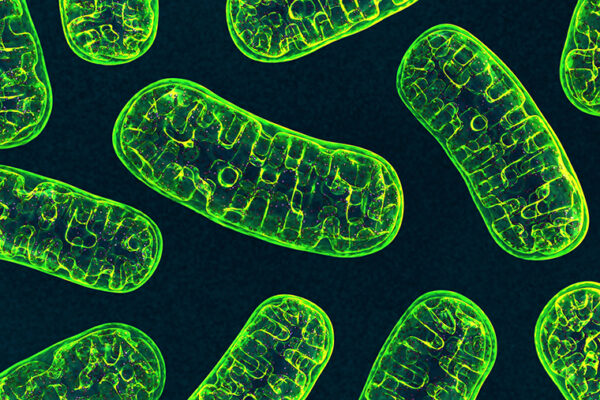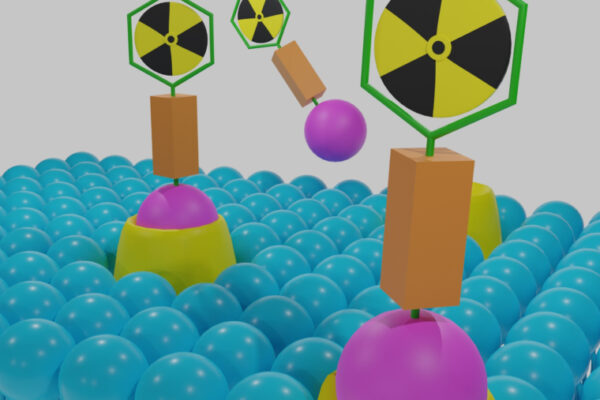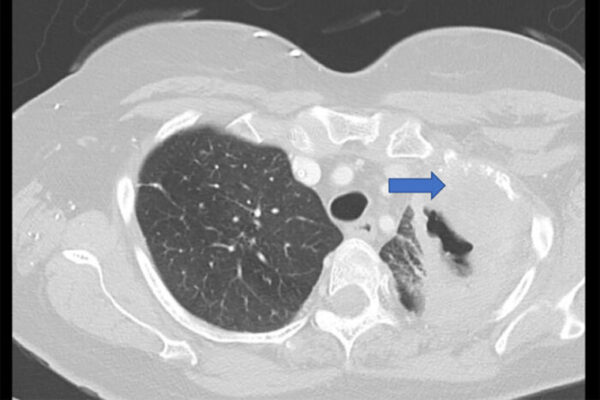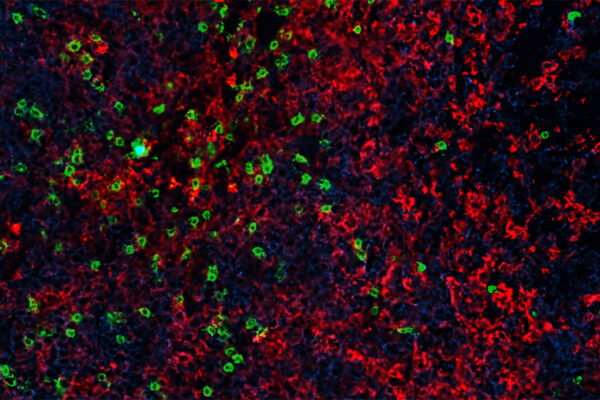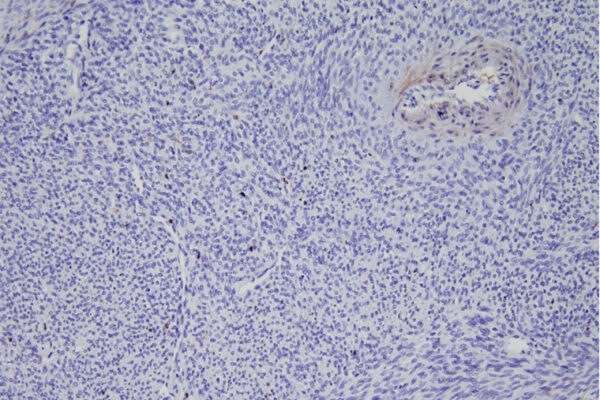Sugar metabolism is surprisingly conventional in cancer
A study in Molecular Cell led by chemist Gary Patti in Arts & Sciences shows that cancer cells don’t want to waste glucose, they just consume it too quickly. The discovery was made possible with metabolomics, which allowed Patti and his team to observe the speed at which small molecules move through cells.
New imaging-based approach to measure radiation dose
Abhinav Jha and his collaborators have developed a way to measure the distribution of dangerous radiation associated with cancer treatments.
Health insurance impacts cancer stage at diagnosis in minority children
Disparities in cancer stage at diagnosis among racial and ethnic minority children and adolescents may be partially explained by health insurance coverage, finds a study from the Brown School at Washington University in St. Louis.
Pairing imaging, AI may improve colon cancer screening, diagnosis
A new technological pairing from the lab of Quing Zhu at the McKelvey School of Engineering may lead to an improved diagnostic tool for colorectal cancer.
$5.3 million grant supports research into lung cancer recurrence
A National Institutes of Health (NIH) grant to Washington University School of Medicine will support research into understanding lung cancer recurrence.
Immunity-boosting treatment enhances CAR-T cell therapy for blood cancers
A study from the Washington University School of Medicine shows that treatment with the immunity boosting protein interleukin 7 (IL-7) after an infusion of genetically modified T cells causes the cancer-fighting CAR-T cells to grow in number and become more effective at killing tumor cells.
Researchers to study leader cells in breast cancer model
Gregory D. Longmore, MD, at the School of Medicine, and Amit Pathak, at the McKelvey School of Engineering, will study the cells that lead the migration of deadly tumor cells through the body with a five-year $2.54 million National Institutes of Health (NIH) grant.
Network analysis useful in real-world applications for practitioners, study finds
A network survey among agencies that address cancer risk in rural Missouri and Illinois, conducted by the Brown School and the School of Medicine’s Implementation Science Center for Cancer Control, was found to be useful in helping those practitioners identify gaps, plan for how to establish future relationships and strengthen collaboration.
Investigational drug attacks synovial sarcoma, a rare type of tumor
A new study from Washington University School of Medicine describes a potential new therapy for synovial sarcoma, a rare tumor of soft tissues.
Smoking-cessation program that targets cancer patients effective
Researchers at Siteman Cancer Center at Barnes-Jewish Hospital and Washington University School of Medicine have found a way to help more patients who want to stop smoking. The successful strategy involves using electronic medical records to help identify smokers when they visit their oncologists and offering help with quitting during such visits.
Older Stories
